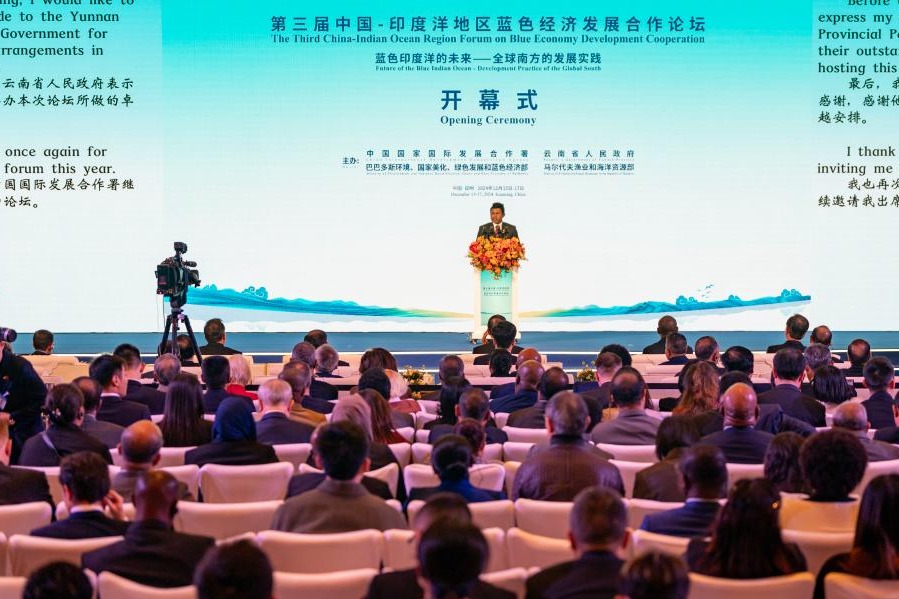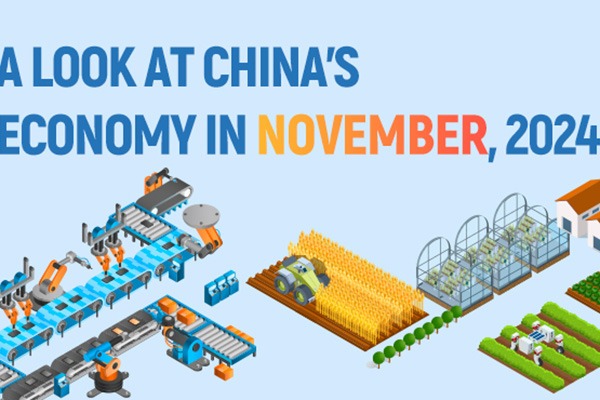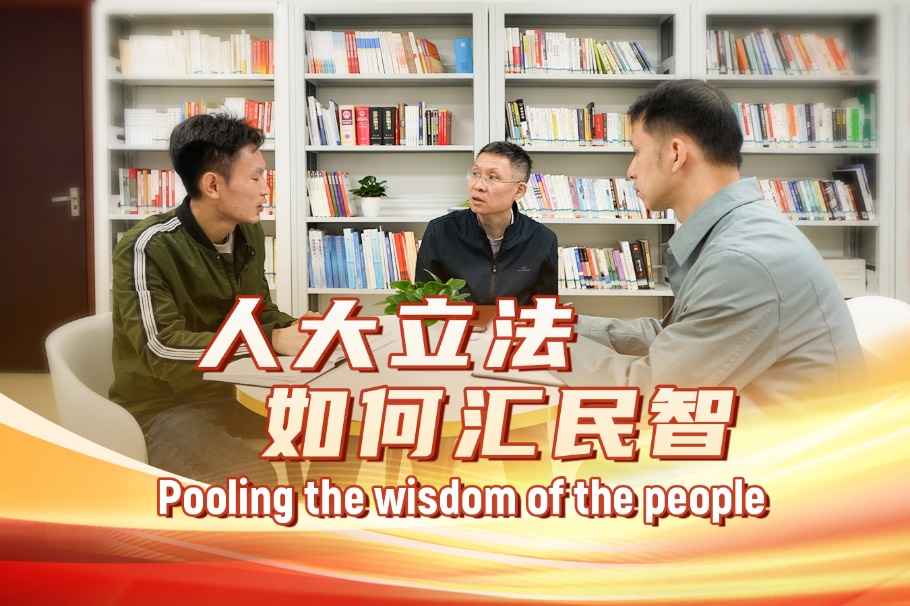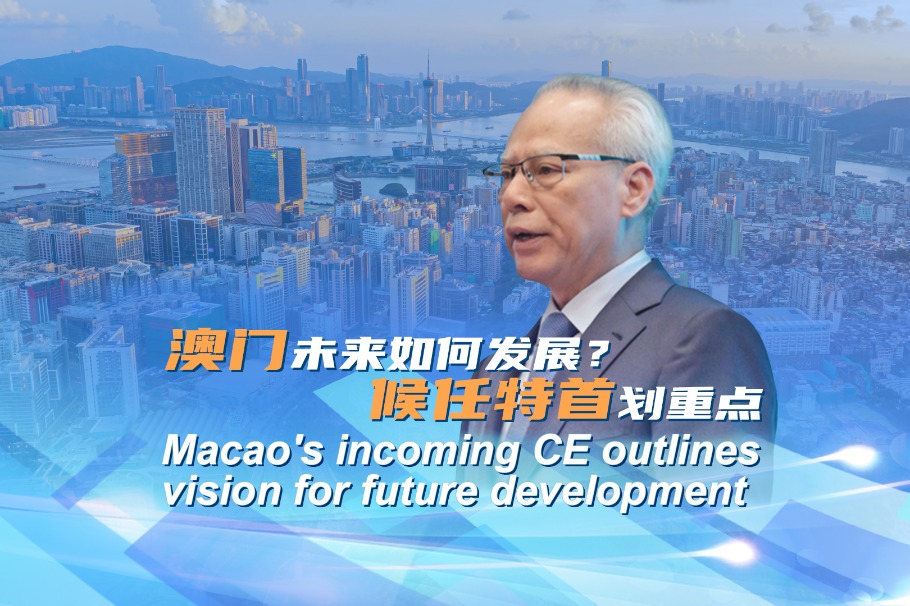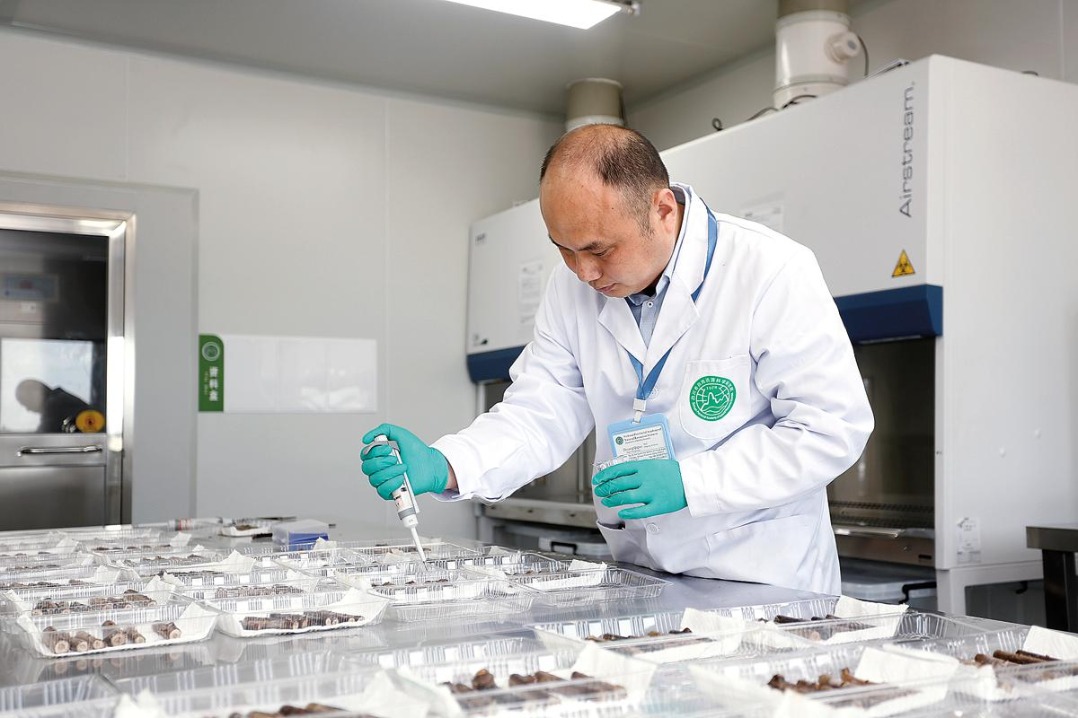West urged to lift Xinjiang sanctions

International experts are urging Western countries, including the United States, to lift sanctions against the Xinjiang Uygur autonomous region, claiming the measures are based on unsubstantiated allegations of "forced labor" and have caused widespread job losses.
The comments were made on Monday during the International Symposium on Employment and Social Security in Xinjiang, held in Urumqi, the regional capital. More than 210 representatives from 44 countries, regions and organizations attended the event.
According to Xinjiang's regional government, by the end of 2023, sanctions had disrupted operations at more than 100 local enterprises. Sanctioned textile and garment factories were forced to cut production or shut down entirely, resulting in significant layoffs. Despite the challenges, Xinjiang continues to trade with 192 countries and regions, officials said.
Erkin Tuniyaz, chairman of Xinjiang's regional government, described employment as fundamental to improving livelihoods and said the region is committed to protecting workers' rights under the law.
"Some anti-China forces have ignored these facts and spread baseless accusations about so-called 'forced labor,'" Erkin said. "These unilateral sanctions are despicable acts, and their motives are becoming increasingly clear to the international community."
The sanctions have particularly affected Xinjiang's cotton, textile, tomato, photovoltaic and chemical industries, all of which are highly mechanized, officials said.
Experts at the symposium argued that allegations of "forced labor" are based on internet rumors and statements from anti-China groups, lacking legal or factual basis.
Alena Douhan, the United Nations special rapporteur on the negative impact of unilateral coercive measures, criticized the sanctions and said they represent a reversal of the burden of proof.
"Anything associated with Xinjiang is now accused of being linked to 'forced labor,' and the accused must prove their innocence," Douhan said via video link. "I call on the sanctioning parties to lift and suspend all unilateral sanctions applied to China, its nationals and companies without the authorization of the UN Security Council."
Mark Levine, a US sociologist and professor at Minzu University of China, said the claims contradict his own experiences in Xinjiang.
"I have seen how the Chinese government has worked to improve the lives of its people over the past 19 years," said Levine, who has lived in China since 2005 and has visited Xinjiang three times. "Through my travels to cities and the countryside, I witnessed the successful eradication of extreme poverty."
Li Juan, director of the legislative affairs committee of the regional people's congress, said the sanctions target basic industries essential to Xinjiang's development.
"Unilateral sanctions under the pretext of 'forced labor' are depriving people of all ethnic groups in Xinjiang of their right to employment," Li said.


















